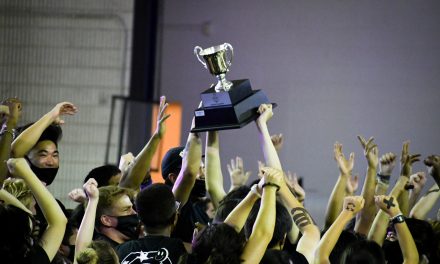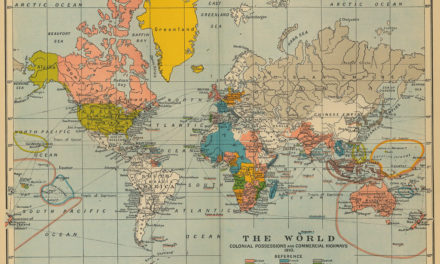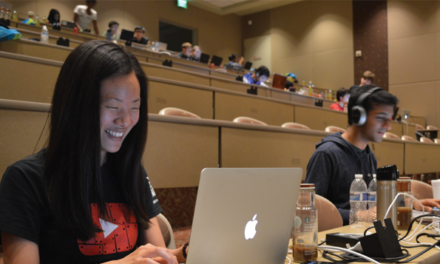On Monday, I stepped off an Emory University shuttle with twenty other students at a four-story brick building in downtown Atlanta. About two dozen people lined the sidewalk in an assortment of sleeping bags and wheelchairs. Some watched us walk into the Gateway Center, a homeless service center with housing and addiction programs for the 2,000 households experiencing homelessness in Atlanta.
Drew Benton, the Gateway Center’s Director of Community Engagement, gathered us in a small storage room where chairs were set up for a presentation, explaining that it was important for us to understand homelessness in Atlanta and the Gateway Center before our work began.
“Of the people we serve, 75% have mental health [issues], 75% have addiction and 75% of them have both,” Benton said. “And so [the Gateway Center] is a big deal. That’s the biggest thing that I would say that we really need to focus on as a society is how do we begin to address mental health in … a positive way where we’re not being abusive?”
In 2022, homelessness in Atlanta experienced a 37% drop from the 2020 count of 3,240 unhoused individuals. Although trending below the rates of most major cities, the drop could also be credited toward the difficulty to count homeless populations accurately due to the difficulty of tracking down encampments . Even for those finding homes, the Atlanta Journal-Constitution found that 271 Atlanta-area complexes create dangerous living conditions for their tenants.
Volunteer Emory’s Day On event sent 211 students to volunteer at nine organizations across the Atlanta area on Martin Luther King Jr. Day. Students could choose between volunteering at homeless services such as the Gateway Center, food pantries, thrift stores and nature preserves all dedicated to their local communities. Volunteer Emory has held multiple days of service this year, but the day of service on MLK Day was the first to be fully registered.
MLK Day is also designated as a National Day of Service to commemorate King Jr. and his life commitment toward nonviolent social change in disadvantaged communities to create the “Beloved Community.” In King Jr.’s hometown, non-profit organizations partner with Hands on Atlanta to dedicate the entire month of January with events for thousands of volunteers to participate.
The morning of Jan. 16, I walked to the Emory Student Center at 11 a.m. for registration and lunch. Johannes Kleiner, Director of Civic and Community Engagement at Emory and Volunteer Emory, spoke to the crowd of students about the significance of the day.
“At Emory—an institution that is located in Atlanta—we are called to learn more about Dr. King and take the complexity of all these causes that are still causes today as an inspiration to continue the work,” Kleiner said. “And, that work isn’t done—not by a long shot.”
The next to take the podium was an Emory alumni and non-profit leader in Georgia. Wande Okunoren-Meadows (02C) is the co-creator of the Hand, Heart, and Soul Project—an organization providing nutritious food to families and child care centers in Clayton County. She reflected that service can have an impact on both a community but also the volunteer.
“I offer you the opportunity to not only reflect on service in Dr. King’s legacy but his teachings: how can we strive to ensure that his work lives on in our own day to day?” Meadows said. “He said life’s most persistent and urgent question is what are you doing for others. I hope we will all take this opportunity to reflect on the meaning of the day and continuously find ways to engage with our beloved community.”
In the storage room at the Gateway Center, Benton explained to us their complex role in helping the homeless in Atlanta. The center is a member of the City of Atlanta’s Continuum of Care—a group of service providers and government entities who combat homelessness. About 75% of Gateway Center’s programs are funded by the U.S. Department of Housing and Urban Development (HUD), but the center also takes private donations to fully serve their community.
The building holds 11 different programs, ranging from daily services like showers and laundry to more permanent solutions such as mental health or addiction treatment. The all-men’s facility also has 382 beds with the living requirements of holding a government ID and pledging to join a program and maintain sobriety.
Zaria Herriman (23Ox), our Volunteer Emory project leader, coordinated with Benton for our visit. Herriman hoped to contribute to the Gateway Center’s work.
“There are a lot of factors that go into homelessness that a lot of people don’t know, and [there’s] such a stigma around people being homeless when it really could happen to anyone,” Herriman said. “The center is one of the organizations in Atlanta, which has a big population of homeless people, that works to provide resources to help people end chronic homelessness and find permanent housing.”
There are no days off at the Gateway Center, and Benton split up our group to help with the day-to-day tasks that keep them busy. My group’s first task was to clean the room we sat in. After stacking tables and chairs, we sorted through various boxes of donations. Benton was overjoyed to see disposable gloves in the pile.
“Nice! And they are mediums,” Benton said. “We definitely need those.”
With our new gloves, Benton sent us to wipe down their lobby of plastic chairs and tables. Some men who live in the Gateway Center passed by the elevator. They didn’t break stride, as we exchanged small greetings. A man whistled while carrying his groceries and gave me a slight nod.
We then attended to over a dozen trash bags filled with linens donated by a hotel. We used our best judgment to decide what to keep or throw away. It took us all by surprise when some sheets and pillow cases came with cigarette burns, blood stains and a dead cockroach.
After finishing our task, another volunteer pointed us toward used sleeping mats for when temperatures dip below freezing that needed to be wiped down. I passed the same room we started in, now with a group of high school volunteers, as Benton gave the same speech we heard a couple hours before.
We joined back together as a group after completing our tasks, and Benton thanked us for our time. Herriman asked the group how we felt about the experience.
After a few seconds of silence, Mohamed Barmada (28G) raised his hand.
“It’s a lot more complicated than I thought,” he said.
Xavier Stevens (23C) is from St. Louis, Missouri, studying English and Creative Writing. Outside of the Wheel, he plays ultimate frisbee with Emory Juice and enjoys listening to Sturgill Simpson and Leon Bridges.





